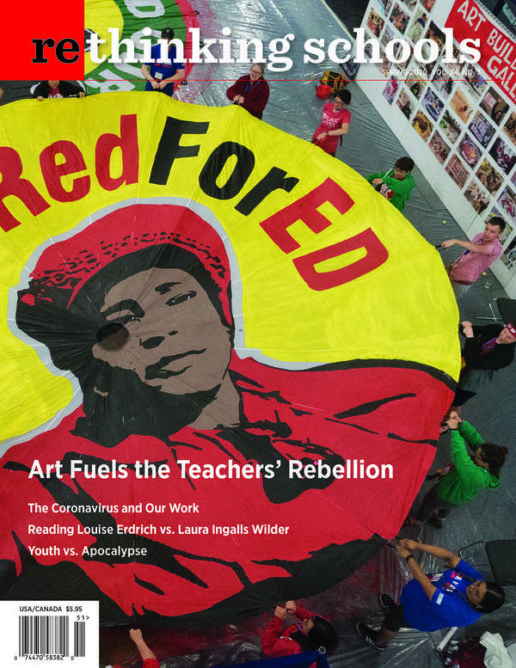Our picks for books, videos, websites, and other social justice resources 34.3
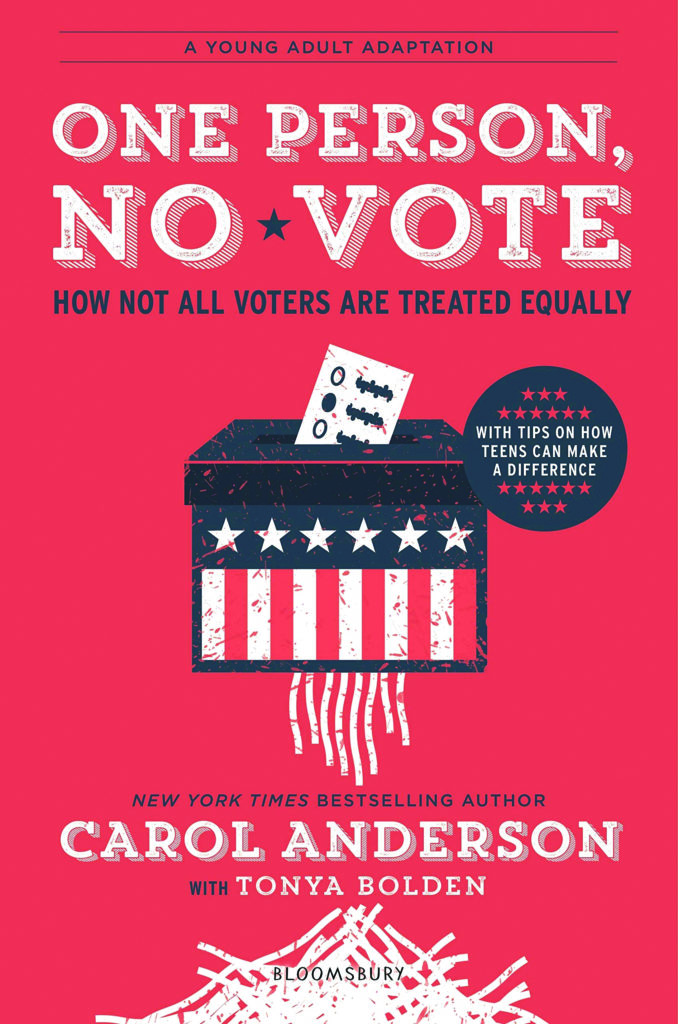
Curriculum
Holler If You Hear Me (Comic Edition)
By Gregory Michie and Ryan Alexander-Tanner
Illustrated by Xena Lopez, Citlali Perez, August Abitang, Stephany Jimenez, Hennessy Morales, Deon Reed, Dalin Dohrn, Isabelle Dizon, Tatum Howlett,
and Sarita Hernández
(Teachers College Press, 2020)
164 pp.
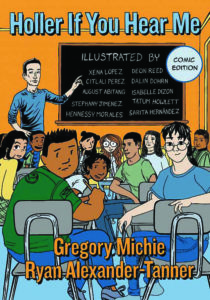
What a marvelous book about teaching and learning — poignant, passionate, respectful, nuanced. We couldn’t put it down. Based on Michie’s original Holler If You Hear Me, published in 1999, the comic edition is fully reimagined. Chapters alternate between in-school stories and moving portraits of students’ lives — illustrated mostly by Chicago-based youth of color. This is no preening white-teacher-savior book. It does not magnify Michie’s teaching accomplishments nor does it romanticize his students. Yet Holler reveals deep respect for students’ lives and the dilemmas they confront in Chicago’s Back of the Yards neighborhood. One of the wonderful things about this book is that it could be used in high school classes to help students study what is almost never a part of the curriculum: students’ own school lives. Michie’s new Afterword offers a compact statement of premises that inform both his book and his teaching, beginning with: “Teachers need to see their students — as well as their students’ families and communities — as fully as possible, recognizing their assets rather than zeroing in on deficits.”
***
One Person, No Vote: How Not All Voters Are Treated Equally
By Carol Anderson with Tonya Bolden
(Bloomsbury, 2019)
276 pp.
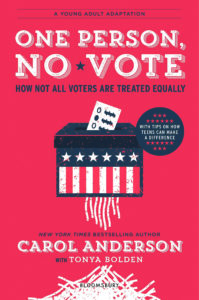
This is a young adult adaptation of Carol Anderson’s One Person, No Vote: How Voter Suppression Is Destroying Our Democracy. Although we like the direct honesty of the subtitle of the adult version better, the adaptation is valuable for high school libraries, civics classes, and voting rights organizing. It is divided into five parts: A History of Disenfranchisement, Voter ID, Voter Roll Purge, Rigging the Rules, and The Resistance. Each part has short chapters with everything young people need to know about the history of voter suppression in the United States, especially in this election year and the 150th anniversary of the 15th Amendment.
***
Rad American History A-Z
By Kate Schatz
Illustrated by Miriam Klein Stahl
(Ten Speed Press, 2020)
169 pp.
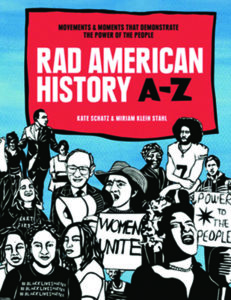
Written for middle school students, but hard to put down as an adult, this alphabet book of people’s history opens with a quote by Grace Lee Boggs: “History is not past. It is the stories we tell about the past.” The stories in Rad American History are the stories we want told in classrooms everywhere. Here are just a few examples: A is for Alcatraz, B is for Black Lives Matter, K is for Korematsu, V is for Voting Rights, and Y is for Youth Climate Movement. Each story is reader-friendly and beautifully illustrated, ending with a short annotated list of other events or people of note that begin with that letter. Congresswoman Barbara Lee said this is a “necessary book that speaks truth to power.” We agree.
***
Poetry
Say Her Name
By Zetta Elliott
Illustrated by Loveis Wise
(Little, Brown Books for Young Readers, 2020) 96 pp.
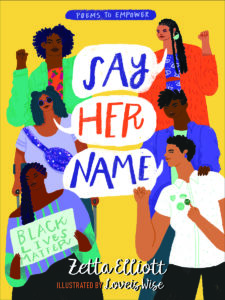
Say her name and solemnly vow
Never to forget, or allow
Our sisters’ lives to be erased;
Their presence cannot be replaced.
This senseless slaughter must stop now.
So begins the poem “Say Her Name,” from the new collection of poetry with the same name by the award-winning author Zetta Elliott. Elliott’s exquisite storytelling in her previous books has helped expand children’s and young adults’ imagination for the roles and experiences of Black people. Now, in her first collection of poetry — inspired by the #SayHerName campaign launched by the African American Policy Forum to raise awareness about police violence against Black women — Elliott has written a book that is both accessible and engaging for young people, yet will challenge people of all ages to more passionately pursue justice. Elliott’s mighty words evoke some of the styles of her inspirations such as Lucille Clifton, Nikki Giovanni, Audre Lorde, and Phillis Wheatley. Her stanzas pay tribute to the three Black women founders of Black Lives Matter, to self-care, to rebellion, and to the brilliance and resilience of Black women. Read these poems in the classroom and take them with you to recite at a Black Lives Matter rally.
***
Podcast
The Land That Never Has Been Yet
By John Biewen and Chenjerai Kumanyika
Scene on Radio
Center for Documentary Studies, Duke University

The title of Langston Hughes’ poem “Let America Be America Again” might seem akin to the ugly message now emblazoned on millions of red hats across the United States. But Hughes clarifies that “America never was America to me.” It is a “land that has never been yet.” The Land That Never Has Been Yet is also the title of the latest podcast series by John Biewen, who reunites with Chenjerai Kumanyika, his collaborator on the Seeing White podcast, to look at the United States’ claim to democracy. The first four episodes have explored our country’s founding period — and those too-often glorified events and documents, like the Revolution and the Constitution — showing their fundamentally antidemocratic nature. The series suggests from the outset that the liberal narrative of “perfectibility” or “inclusion,” where the U.S. system of governance improves over time as more and more groups — poor people, people of color, women — get included in U.S. political life, is flawed. What if the original system cannot, despite tinkering and amending, create a democratic and just society? Teachers already use Seeing White in their classrooms to teach about the history of white supremacy; we hope they add The Land That Never Has Been Yet to their lesson plans when teaching U.S. history and civics.
***
Picture Book
Man Up!
By Riley Campbell, London Jones, and Shirelle Hurt
Illustrated by Joy Ingram
(Shout Mouse Press, 2019)
38 pp.
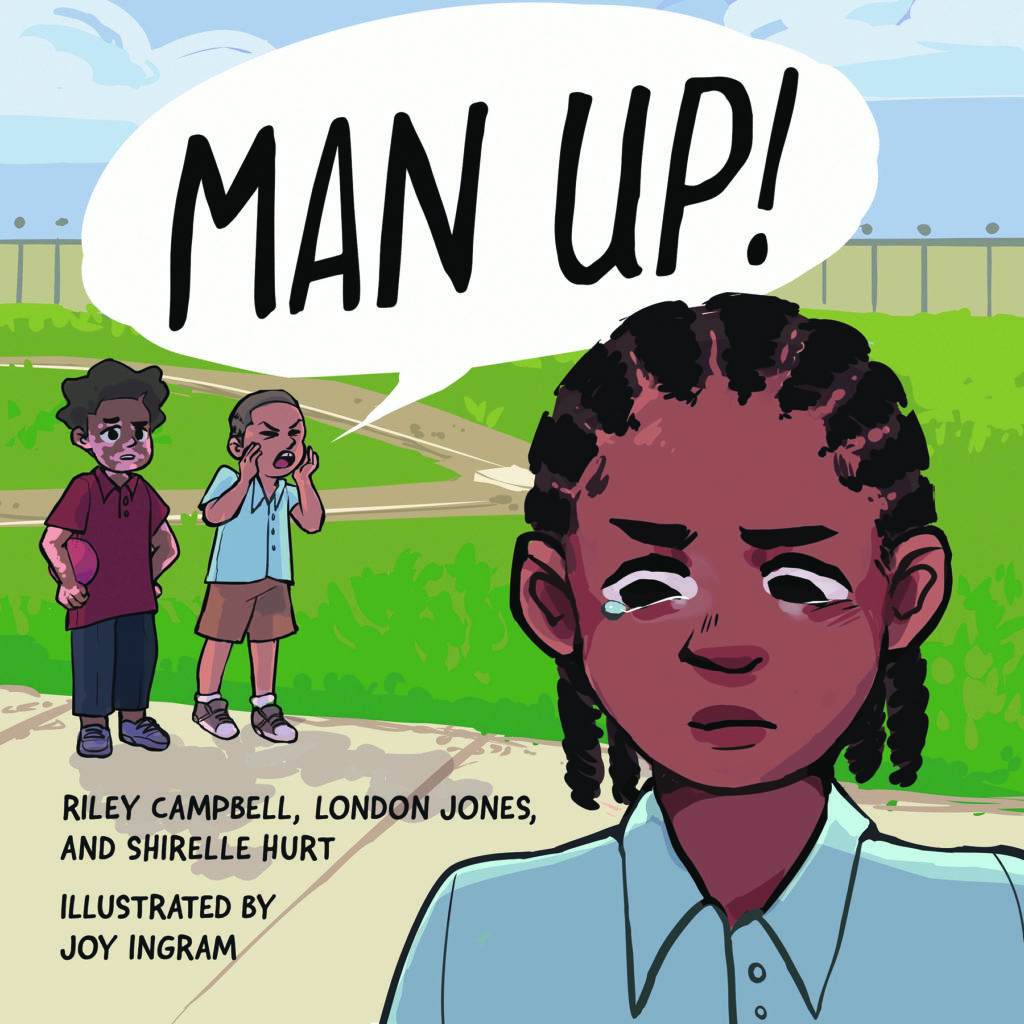
A picture book for ages 5 and up, Man Up! is dedicated to “all the boys who are told they can’t be themselves.” Not since William’s Doll was published in 1972 have we seen a book that so effectively helps young readers consider that it is natural for boys to have and express emotions, sensitivity, and empathy. The protagonist, Aaron, gets teased by his friends and told to “man up” by his dad whenever he expresses sadness or sympathy. He cries when a dog gets hit by a rock and mentions to a girl on the bus that her doll looks pretty. The other students laugh at him, saying he is a crybaby and likes dolls. Thankfully his brother returns from college and clarifies that it is unhealthy to bottle up one’s feelings. We won’t tell you the ending, but suffice it to say that this book opens the door to a necessary conversation about toxic norms for boys. The authors of this book are three high school students and it is published by the nonprofit organization Shout Mouse Press, the source of many excellent children’s books by Washington, D.C., teens.

